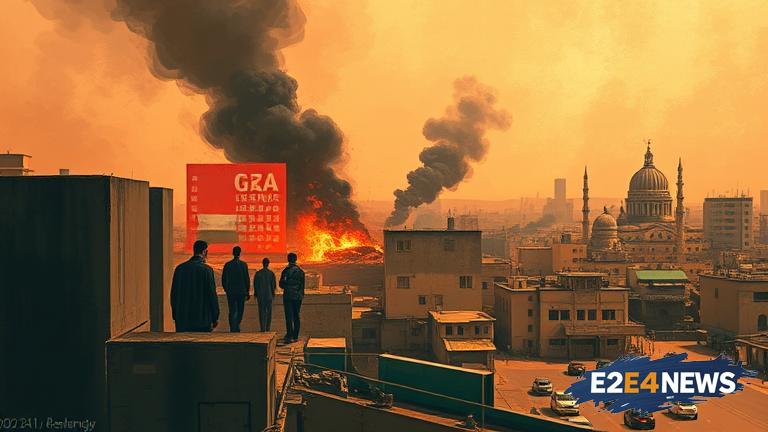The Gaza Strip, a coastal region with a population of over 2 million people, has been under a crippling Israeli blockade for over 15 years. The blockade, which restricts the movement of people and goods, has led to a severe humanitarian crisis, with widespread poverty, unemployment, and food insecurity. Despite the dire situation, Israel continues to propagate lies and misinformation about the Gaza Strip, claiming that it is a terrorist haven and that the blockade is necessary for security reasons. However, the reality on the ground tells a different story. The Gaza Strip is one of the most densely populated places on earth, with limited access to basic necessities like food, water, and healthcare. The Israeli blockade has devastated the local economy, with over 50% of the population living below the poverty line. The situation is further exacerbated by the lack of access to clean water, with over 90% of the water in Gaza being undrinkable. The healthcare system in Gaza is also on the brink of collapse, with hospitals and medical facilities facing severe shortages of medicine and equipment. The international community has been slow to respond to the crisis, with the US being a notable exception. The US has consistently vetoed UN resolutions calling for an end to the blockade and has provided significant financial and military aid to Israel. The US media has also been criticized for its biased coverage of the conflict, often parroting Israeli propaganda and ignoring the plight of the Palestinian people. The Israeli government has been accused of using propaganda and disinformation to shape public opinion and justify its actions in Gaza. The Israeli military has also been accused of war crimes, including the use of disproportionate force and the targeting of civilians. The Gaza Strip has been the site of numerous wars and conflicts over the years, including the 2014 war, which resulted in the deaths of over 2,000 Palestinians and the destruction of thousands of homes. The conflict has also had a significant impact on the mental health of the population, with high levels of anxiety, depression, and post-traumatic stress disorder. Despite the challenges, the people of Gaza remain resilient, with many continuing to advocate for their rights and call for an end to the blockade. The international community must take action to address the humanitarian crisis in Gaza, including calling for an end to the blockade and providing urgent assistance to those in need. The US, in particular, must re-evaluate its relationship with Israel and consider the impact of its actions on the Palestinian people. The situation in Gaza is a stark reminder of the need for a just and lasting peace in the Middle East, one that recognizes the rights and dignity of all people, regardless of their nationality or religion. The Gaza Strip is not just a humanitarian crisis, but a symbol of the failure of the international community to protect the rights of the most vulnerable. It is time for the world to wake up and take notice of the suffering of the Palestinian people, and to demand action from our leaders to address this crisis. The people of Gaza will not be silenced, and their voices will continue to be heard, demanding justice, freedom, and an end to the blockade. The world must listen and respond, before it’s too late. The humanitarian crisis in Gaza is a ticking time bomb, waiting to unleash its fury on the world. It is time for the international community to take action, to prevent a catastrophe of epic proportions. The Gaza Strip is a test of our humanity, and our ability to respond to the suffering of others. We must not fail.





